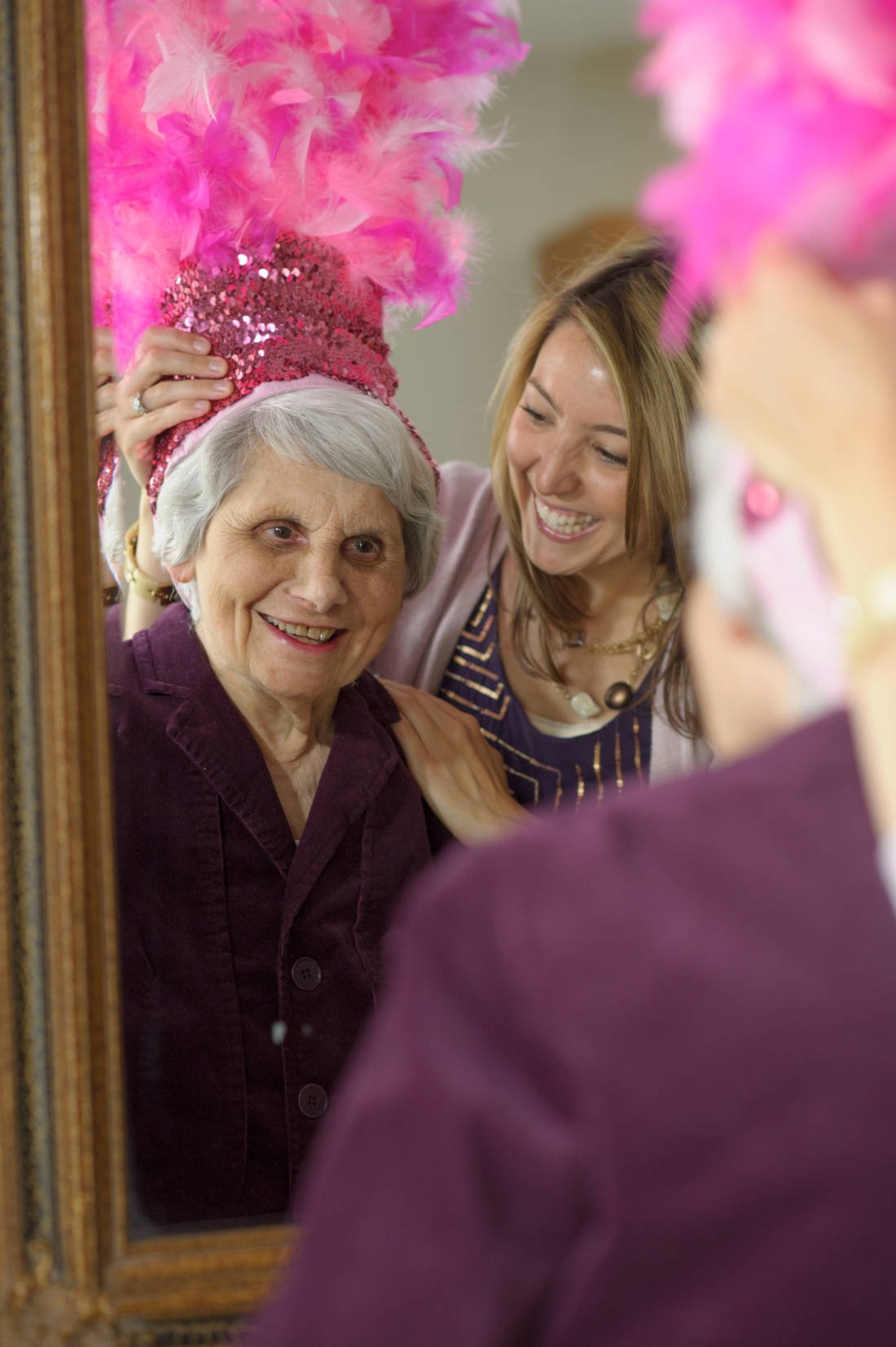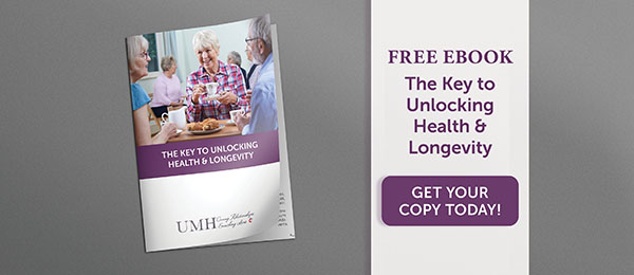6 Reasons Senior Friendships Are Vital to Healthy Aging
assisted living | senior nutrition | senior nutrition ct | senior living nutrition | health tips for seniors | Aging & Caregiving
As people age, the relationships they forge and maintain with friends become more important than ever. Having people to connect with socially and personally isn’t just fun; it’s actually fundamental to promoting a healthy lifestyle throughout the aging process. And while certain transitions and circumstances at this stage of life can make creating and sustaining active friendships more challenging, there’s no denying that these special bonds are instrumental for seniors.
Let’s talk about what friendship might look like during one’s golden years and explore a multitude of reasons why prioritizing friendships is so essential to a senior’s well-being.
1. Dynamic friendships help battle senior loneliness and depression.
Seniors who find themselves isolated from the people and sense of purpose that once fueled them are prone to declines in mental and emotional health. Often, they’re lacking adequate opportunities for human connection, as they struggle to stay social, active, and fulfilled. This can lead to a general sense of loneliness and even spiral into more serious levels of depression.
Human nature is such that we crave engagement with other people, and as we age, it’s crucial to take proactive steps to cultivate a healthy social life with friends. This might mean planning shared meals, spending time with neighbors, engaging in local senior events, participating in outreach and volunteer programs, or whatever activities bring you (or the senior in your life) closer to the people around you.
2. Social engagement promotes mental acuity and cognitive health.
Scientists have long thought that the brain’s ability to learn and grow was hardwired and finite, but the latest research on neuroplasticity reveals that the brain can actually continue to change, reorganize and create new pathways. This means that human brains can adapt and stay sharp well past the formative years. In order to realize the full benefits of neuroplasticity, however, one must practice using their brain.
This is a major reason why the social interaction associated with senior friendships is critical for positive aging outcomes. Seniors should continue to develop existing relationships and create new ones with those around them. Something as simple as playing a card game or learning a new hobby together can have a major impact on boosting cognitive health.
3. Human connection is closely linked to physical health and immunity.
Data has shown some eye-opening correlations between personal relationships and health. For instance, a comparative analysis of lonely and non-lonely seniors found that the lonely seniors also suffered from various medical conditions at a higher rate, including hypertension, diabetes, and heart conditions. And a study from the University of Chicago found that loneliness can significantly affect someone’s blood pressure, particularly when they are older, potentially increasing it by up to 30 points.
Another study from psychologist Steve Cole and professionals from UCLA School of Medicine, the University of California at Davis, and the University of Chicago found that loneliness causes abnormalities in the body’s monocytes, a white blood cell that helps defend the body against infection. Social isolation causes the monocytes to stay immature, which results in diminished immunity. By maintaining friendships that help stave off senior isolation, there are immense physical health advantages to be gained.
4. Friendships can actually help you live longer.
Developmental psychologist Susan Pinker’s research and studies in social neuroscience show a critical link between face-to-face contact and the ability to learn, find happiness, be resilient and live a long life. She explains that human beings are hardwired to connect with other human beings, whether that connection comes in the form of close personal relationships or simple social bonds. All of these in-person touchpoints come together to form a personal “village” of family, friends, and community, one we desperately need in order to thrive and survive.
Consider that a prospective study of 4,000 women with breast cancer, which looked at every aspect of their lifestyles, showed that the greatest predictor of survival over a 10-year period was the size of their in-person social networks. In addition, people with active, in-person social lives have a 2- to 15-year lifespan advantage. It has been argued that social contact is an even more powerful predictor of health and longevity than physical exercise or even whether or not a person smokes. Senior friendships play a critical role in helping people maintain the necessary social connections that foster longer, healthier lives.
5. Family members often fall into more of a caregiver role.
“As we get older, our friends begin to have a bigger impact on our health and well-being, even more so than family, according to a new study,” says AARP. Researchers led by William Chopik, an assistant professor of psychology at Michigan State University, reviewed two surveys of approximately 280,000 people who were questioned about relationships, happiness and health. In the first study, “valuing friendships was related to better functioning, particularly among older adults, whereas valuing familial relationships ‘exerted a static influence on health and well-being across the lifespan.’”
It’s explained that “the power of friendship on physical and mental health often is ignored when researching older people, because familial relationships are frequently deemed more important for this age group. But family members typically become caregivers for the elderly, and that role can create a sense of obligation. While the relationships are still vital, Chopik says, they may not provide as much joy in an elderly person's life as long-term friends.”
6. Friends motivate each other to adopt healthy habits.
There’s something to be said for the idea that there’s accountability in friendship. When seniors spend time together, they can often motivate one another to embrace healthier approaches to nutrition and exercise. Physical activity, for example, can be a social activity among friends, one that encourages each participant to keep up a healthy routine.
Ultimately, friends care about each other’s well-being, so they are likely to be some of the staunchest reminders of what needs to be done to stay healthy. This could be anything from making necessary health appointments to staying on track with nutrition or managing medications appropriately. They can also alert you to impairments you may not have easily recognized on your own (like strained eyesight or hearing loss) so you can give these concerns the attention they warrant.
At a time in life when it might seem difficult to create new friendships and nurture old ones, it’s important for you (or the senior in your life) to foster an environment that supports these types of relationships. One of the many draws to senior living communities is the abundance of community and socialization opportunities available right outside your door. Here, seniors are in an optimal place to connect, engage and build friendships that feed the soul.
To find out how United Methodist Homes provides a wealth of offerings and opportunities to support the health and wellbeing of our residents, contact us today or schedule a complimentary visit now. For additional tips on senior health and lifestyle issues, check out our blog.
About Marissa Salvesen
My journey into the world of senior living began when I started working for United Methodist Homes in 2010. Starting as an Activities Director at one of our-winning assisted and independent living communities and then transitioning to Marketing and Promotions Manager for UMH, I now work as the Manager of Mission Development, fostering the Mission and Values of our organization. I love sharing stories about the many ways we build meaningful relationships and enrich the lives of those we serve, and am proud to be part of building UMH’s 140-year legacy of caring. Wondering what makes our communities such special places to live and work? Connect with me and find out!

Our Blog is a 2016 Platinum Generations Award Winner! The Generations Award is an annual international competition for excellence in senior marketing recognizing professionals who have communicated to the 50+ Mature Markets.




